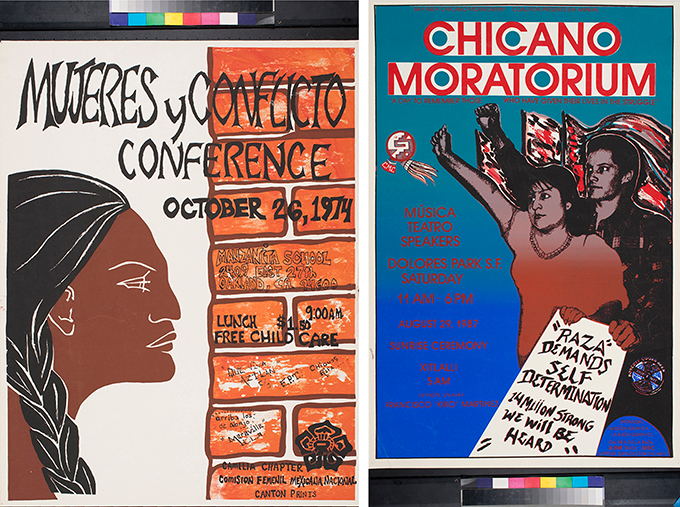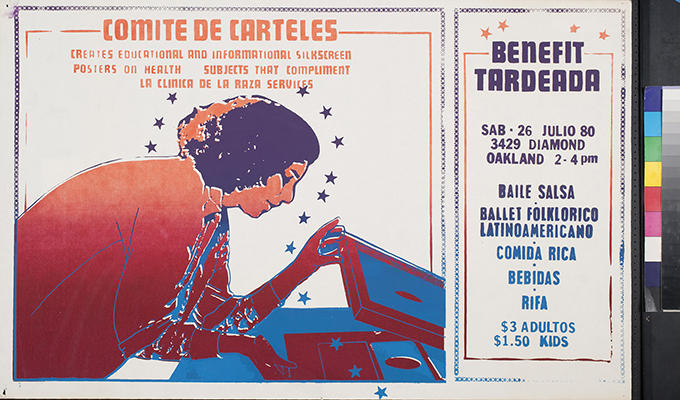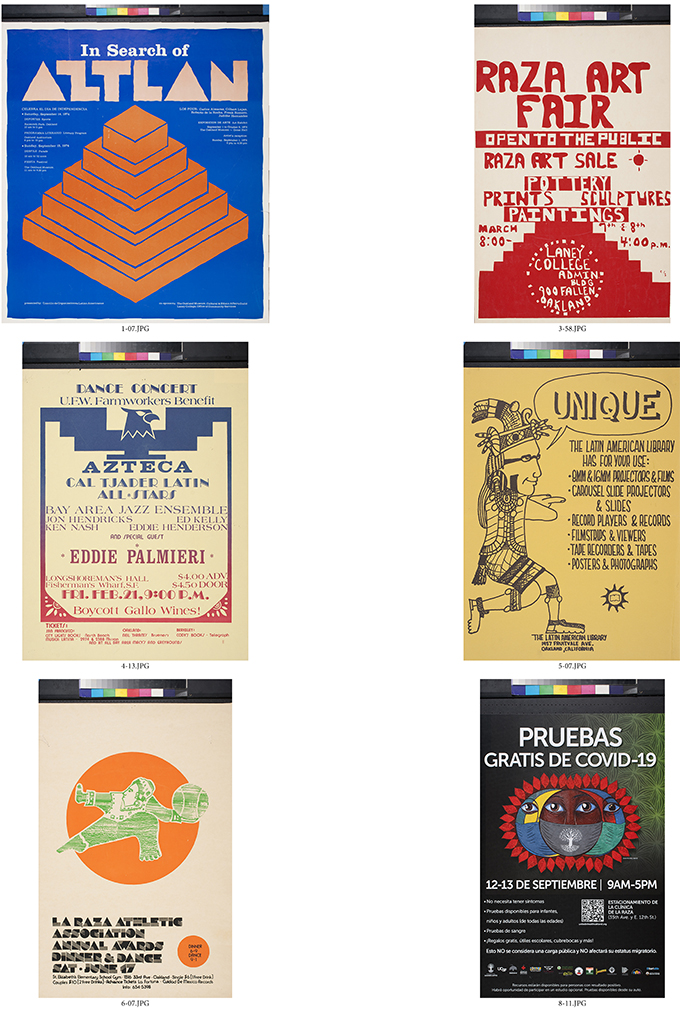Liberating Public Library Content
By Lincoln Cushing
The poster digitization project at the Oakland Public Library César Chávez Branch

On September 18, 1966, the Oakland Tribune headlined the dedication of the Latin-American Library, the first permanent library of its kind in the US. Located at 1457 Fruitvale Avenue, the library had received a $300,000 federal grant to convert the former branch library into a demonstration project, a bilingual facility with 4,000 titles for a Spanish-speaking community of the same number.
In 1972, the library moved to the underutilized Ina D. Coolbrith branch library 1449 Miller Avenue. That same year the National Commission on Libraries and Information Services held a meeting in San Francisco to explore the emerging impact of digitized content in libraries. Among those attending was LAL director Keith Revelle, who urged that Spanish-language collections and services get support as well.
Fast forward to 2019, when my San Francisco Public Library friend Laura Lent told me about a colleague of hers, Elissa Miller. Elissa worked at what is now called the César E. Chávez Branch (now at 3301 E. 12th St.), but had also been a branch manager when the library was called the Biblioteca Latinoamericana in the 1980s and early 90s. Laura knew that I was a poster scholar, and Elissa had some posters at their library, and maybe we should talk? So, we did.
My field trip there confirmed my basic thesis of independent community collections – they all have value.
Further meetings with Elissa and Branch manager Pete Villaseñor resulted in a collaborative project that would have made librarian Revelle proud.

I offered to shoot all their posters as high-resolution digital files. I benefit by adding images to my extensive digital research catalog, and they benefit by breathing new life into uncataloged stacks of paper in folders. I shot almost 250 posters during the early days of the pandemic, and we are now building the catalog record (year of publication, artist, medium, all the good stuff). Inexpensive digital prints can be displayed instead of original and images can be posted on their website.
The library has been a bilingual beacon of hope and resilience for a broad community. Poet/artist Jose Antonio Burciaga read from his new book Drink Cultura Chicanismo there in 1993, as did author Piri Thomas in 1999. The library hosted celebrations of Day of the Dead and Cinco de Mayo.
As do most public libraries these days, OPL-CCB supports a host of programs and services well beyond just books. One of these posters promotes free COVID testing, they distribute free food twice a week, and they are hosting a Mam Cultural Festival which celebrates the growing Mayan presence in Bay Area.
The posters are mostly local (Oakland and the broader San Francisco Bay Area), and cover a range of subjects including health care, the arts, labor, police violence, cultural pride, solidarity with Latin American struggles, and literacy. As the collection becomes fully cataloged, these treasures will be shared with the public.
[Language note: What’s the proper punctuation for César Chávez? Rules of Spanish require diacritics (accents), but the labor leader himself did not use them. Both are acceptable.]
.

…